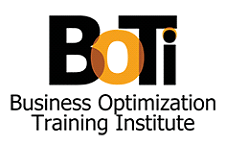Free Training & Career Tips... Subscribe to Get Weekly Career Tips

By Subscribing You are Agreeing to Terms and Conditions
This article provides an in-depth understanding of what BBBEE is, including the BBBEE Act, BBBEE skills development, BBBEE skills development training, and BBBEE skills development strategy. Read on.
BBBEE is an acronym for Broad-Based Black Economic Empowerment. It’s a form of economic empowerment introduced by the South African government to eliminate inequality and distribute wealth equally to all South Africans who were previously disadvantaged.
BBBEE is a program borne out of the effort of the South African Government to educate, train, and give a better life to a larger percentage of South Africa’s population that was previously disadvantaged under the apartheid rule.
In a nutshell, BBBEE can be defined as a South African government authorized tool for unlocking funds for empowering broad-based community “upliftment.*”
*Upliftment, mostly used in South Africa, is the process of raising the education level and economic status of disadvantaged groups.
BBBEE is implemented to help many black people who have been disadvantaged by the legacy of the apartheid systems and inequitable educational practices. The program aims at accelerating the participation of black people in the economy by encouraging positive changes.
When properly executed, BBBEE is capable of supporting job creation and global competitiveness, and boosting economic growth through skills development. BBBEE creates a more skilled workforce by reducing the burden on entrepreneurs.

The BBBEE Act is the Broad-Based Black Economic Empowerment Act 53 of 2003. It provides the legislative framework for the BBBEE program in South Africa.
The main purpose of the BBBEE Act is to address the legacy of apartheid in South Africa and promote the economic participation of Black People in the South African economy.
The BBBEE Act is a powerful expression of the policy enacted by the South African government to actively promote and implement BBBEE.
In terms of the BBBEE Act, it’s a criminal offence for a person to intentionally:
*Fronting practice is a transaction, arrangement, or other act/conduct that directly or indirectly frustrates or undermines the achievement of the objectives of the BBBEE Act or the implementation of any of the provisions of the BBBEE Act.
An individual who is found guilty will pay a fine and/or be subjected to up to 10 years’ imprisonment. A firm that is found guilty may be fined up to 10 percent of its annual turnover.
A convicted individual, as well as his/her directors and shareholders (in certain situations), is banned from transacting with the Government and public entities for 10 years from the date of conviction.
A BBBEE verification officer, a procurement officer of a governmental body, or a procurement officer of a public entity who becomes aware of such a criminal offence but fails to report it is considered guilty of a criminal offence and is liable to pay a fine and/or be subjected to up to 12 months’ imprisonment.
The BBBEE Act also:
The BBBEE program is measured through the BBBEE Scorecard. The BBBEE Scorecard system is made up of seven elements namely:
Each element has certain weighing points assigned to it. For instance
| BBBEE Element | Maximum Number of Weighting Points Available |
| Ownership | 25 |
| Management Control | 15 plus 4 bonus points |
| Skills Development | 20 plus 5 bonus points |
| New Enterprise and Supplier Development | 40 plus 4 bonus points |
| Socio-Economic Development | 5 |
| TOTAL | 118 |
Just as its name depicts, the purpose of the BBBEE scorecard is to determine your BBBEE preferential procurement level and to give you a guideline on how you can improve upon your current level.
Having favorable scores on the BBBEE scorecard gives many opportunities, which include the following:
The BBBEE scorecard measures three main components of BBBEE and some scenarios need to be considered in all three:

The BBBEE absorption points help us to understand and use the BBBEE scorecard.
Companies should endeavour to absorb the unemployed black people on learnerships at the end of the learnership. A maximum of 5 bonus points is granted if the company absorbs the learners which are allocated according to the percentage of unemployed black learners absorbed at the end of the Learnership.
For example: 5 unemployed learners were sponsored to complete the Learnership and only one learner gets absorbed upon completion. The company will earn 1 bonus point out of the maximum 5 available bonus points.
Here are the points allocation for each element on the BBBEE scorecard:
This has to do with the level of black ownership of a firm or company and always has 20 main points plus 3 bonus points. When determining the level of black ownership of a company, the company or firms earns points for the following:
| Description | Weighting | Target | Your score |
| Exercisable voting rights in the hands of black people | 3 | 25%+1 vote | |
| Exercisable voting rights in the hands of black women | 2 | 10% | |
| Economic interest (% ownership) of black people | 4 | 25% | |
| Economic interest (% ownership) of black women | 2 | 2.5% | |
| Economic interest of black new entrants or black participants of broad-based ownership schemes or co-operatives | 1 | 2.5% | |
| Ownership fulfilment (all shares fully paid) | 1 | Yes | |
| Net value of shares (as % of total net value) | 7 | 5% | |
| Bonus points | |||
| % of total shareholding by black new entrants | 2 | 10% | |
| % of total shareholding by black participants of broad-based ownership schemes or co-operatives | 1 | 10% | |
| Total Points | 23 |
Calculating ownership points:
For instance, the target for black ownership (economic interest) is 25% with 4 achievable points. If a firm has only one black shareholder who owns 5% of the firm, then the firm has achieved 20% of the target and will, therefore, score 20% of the achievable 4 points i.e. 5% (actual) ÷ 25% (target) x 4 (achievable points) = 0.8 points scored.
This has to do with the percentage of black people in control of the direction of a firm’s business operation as well as those in top management who control the daily operations. It has 10 points plus 1 bonus point.
| Description | Weighting | Target | Your score |
| Board Participation | |||
| % of voting rights held by black board members (using ARG adjustment) | 3 | 50% | |
| % of executive directors (using ARG adjustment) | 2 | 50% | |
| Top Management Participation | |||
| % of black senior top management (using ARG adjustment) | 3 | 40% | |
| % of black other top management (using ARG adjustment) | 3 | 40% | |
| Bonus Points | |||
| % of black people who are independent non-executives | 1 | 40% | |
| Total Points | 11 |
This measures the representation of black people at each management level in business and counts 15 points plus 3 bonus points.
| Description | Weighting | Target (2017) | Your score |
| Black disabled people as a % of all full-time employees | 2 | 3% | |
| Black senior management (using ARG adjustment) | 5 | 60% | |
| Black middle management (using ARG adjustment) | 4 | 75% | |
| Black junior management (using ARG adjustment) | 4 | 80% | |
| Bonus Points | |||
| Meeting or exceeding EAP* levels on the above items (one point per item, excluding black disabled people). Bonus points are subject to achieving at least 40% of all the above four targets | 3 | 40% | |
| Total Points | 18 |
* EAP (Economically Active Population) refers to the percentage of the total labor force that is made up of black people, as determined by Statistics SA. It’s presently about 87%.
Skills development measures a firm’s investment in the training and development of its black employees. It is an excellent way for any firm to align its business growth and BBBEE strategy, regardless of the size of the firm, because it directly benefits the skills base of the firm’s workforce. To improve skills development an important aspect to consider is placing people on learnerships and accredited training programmes.
Scroll down for more discussion about BBBEE skills development.
This element allows businesses to gain significant points on procurement or spend as long as the procurement is made from suppliers that already have high BBBEE score ratings.
The immediate suppliers’ BBBEE score ratings, in turn, depend on their suppliers’ score ratings, and so the pressure to become BBBEE compliant spreads down the value chain – from the producer to the final consumer. This element has 20 points.
| Level of Supplier | % claimable | Amount spent | Amount claimable |
| Level 1 (100pts +) | 135% | R10,000 | R13,500 |
| Level 2 (85 – 99) | 125% | R10,000 | R12,500 |
| Level 3 (75 – 84) | 110% | R10,000 | R11,000 |
| Level 4 (65 – 74) | 100% | R10,000 | R10,000 |
| Level 5 (55 – 64) | 80% | R10,000 | R8,000 |
| Level 6 (45 – 54) | 60% | R10,000 | R6,000 |
| Level 7 (40 – 44) | 50% | R10,000 | R5,000 |
| Level 8 (30 – 39) | 10% | R10,000 | R1,000 |
| Non-compliant (less than 30) | 0% | R10,000 | R0 |
| Description | Weighting | Target (2017) | Your score |
| Claimable BBBEE procurement spent as a % of total procurement spend | 12 | 70% | |
| Claimable BBBEE procurement spent from Qualifying Small Enterprises (QSEs) and Exempted Micro Enterprises (EMEs) as a % of total spending. | 3 | 15% | |
| Procurement from suppliers that are majority black-owned (max 3pts), or 30% or more black women-owned (max 2pts) | 5 | 20% | |
| Total Points | 20 |
This element accounts for what a business does to support the creation or growth of another BBBEE business, which also involves the contribution to the enterprise development funds. This element has 15 points and is divided into two categories namely:
Category A: contributions made to Qualifying Small Enterprises (QSEs) or Exempted Micro Enterprises (EMEs) that are mainly black-owned or owned by black women.
Category B: contributions made to any other business that is mainly black-owned or owned by black women. The business must have over 25% but less than 50% black.
| Description | Weighting | Target | Your score |
| Average annual value of contributions made in the past five years, as a % of average annual net profit after tax for the same five years | 15 | 3% |
This element accounts for corporate social investment and has 5 points. Generally, this element includes a company’s donations to charity or involvement in industry-specific charity-based initiatives.
| Description | Weighting | Target | Your score |
| Average annual value of all qualifying contributions as a % of average annual net profit after tax | 5 | 1% |
Priority Elements of the BBBEE Scorecard
The amended BBBEE Codes of Good Practice, popularly referred to as the “new Codes,” came into effect on 1 May 2015. The new code introduced the concept of priority elements.
There are three priority elements on the BBBEE scorecard which firms must comply with for verification. These priority elements are Ownership, Skills Development, and Enterprise and Supplier Development.
A Qualifying Small Enterprise (QSE) must comply with at least two of the three priority elements, of which Ownership is compulsory while a generic entity must comply with all three of these priority elements.
Understanding skills development is a necessity for all business owners. Although skills development training is always considered as an important pillar for economic growth, stability, and success, there are some practical issues, such as lack of funds, which can impede skills development.
This is why BBBEE Skills Development Training is very important. It creates avenues for upskilling and bridges the gap between experience and certification.
Of all the three BBBEE priority elements, skills development is one of the easiest to comply with. It measures the extent to which firms execute initiatives designed to develop or upgrade the competencies of black people internally and externally.
Skills development carries lots of weight when it comes to BBBEE compliance and there are several benefits businesses stand to enjoy by complying. For instance, the South African Revenue Service (SARS) offers a tax break of R60,000 for each participant on a learnership program.
The Skills Development Scorecard measures monetary spending on black candidates. It also measures the number of black people who are enrolled in Learnership programs. That is, the Skills Development Scorecard applies to hit targets on:
Large businesses must spend about 6% of their total payroll on BBBEE skills development training while QSEs must spend about 3% of their total payroll. When they do this, they will earn 8 points on the BBBEE scorecard. They can further earn 4 points by training Black disabled employees.
Businesses must train about 2.5% of their total payroll. This equals 1 person in every 40 staff and 10 persons in 400 staff, and so on. A business would earn 8 points by complying with this rule.
A business can earn a maximum of 5 bonus points by employing learners at the end of their Learnership program or if the learner is employed by another business.
Therefore, a firm must endeavor to employ unemployed black learners at the end of the program. The bonus points are allocated according to the percentage of unemployed black people on the learnerships absorbed at the end of the Learnership.
For instance, if five unemployed black learners were sponsored to complete the Learnership and just one gets employed after completing the program. The company that handled the learnership program will earn one bonus point out of the maximum 5 bonus points available. However, this can only be effective if such a learner is employed permanently or on a fixed-term contract.
| Description | Weighting | Target | Your score |
| Skills Development Spending | |||
| Skills Development expenditure on learning programs for black people as a percentage of payroll | 8 | 6% | |
| Skills Development expenditure on learning programs for black employees with disabilities as a percentage of payroll | 4 | 0.3% | |
| Learnership, Apprenticeships, and Internships | |||
| Number of black people participating in learnerships, apprenticeships and internships as a percentage of the total number of employees | 4 | 2.5% | |
| Number of black unemployed people participating in training as a percentage of the total number of employees | 4 | 2.5% | |
| Bonus Points | |||
| Bonus points for the number of black people absorbed by the measured company or the industry at the end of the learnership, apprenticeship and internship programs | 5 | 100% | |
| Total | 25 |
The sub-minimum requirement is 40% of the total weighting points for skills development training, which on the BBBEE scorecard is 20 points. Also, black women should form about 40% to 50% of the beneficiaries of the relevant elements of the BBBEE scorecard. More so, black youths, black people with disabilities, black unemployed people, and black people living in rural areas form part of the beneficiaries.
Note: Skills development training also includes on-the-job training (learnership) or core skills training, as long as the participant can quantify the cost involved in the training using a reasonable methodology.
The skills development initiatives are divided into seven categories – A through G. Initiatives in category B, C, and D training will help businesses to achieve the maximum weighting under the skills development element. This will help there business’ overall rating.
ABET, or Adult Education and Training (AET), is classified as Category A and B training on the learning program matrix. Learnerships are classified under category C and D training,
At BOTi, we offer several ABET learning areas of which numeracy and literacy (communication in English) are the two most popular. We also offer NQF 1 to NQF 4 learnership programs in business practice, ICT, and manufacturing and engineering-related activities.
But for this writing, the generic BBBEE scorecard is used.
As stated above, a business must spend at least 6% of its payroll on skill development training. This spending on skills development training includes the following:
For more information on our BBBEE skills development programs, kindly contact us or send us an email on [email protected]. Our professional team has over 15 years of experience in skills development training and can help your business reach its BBBEE scorecard goals.

Copyright text 2024 by Business Optimization Training Institute.